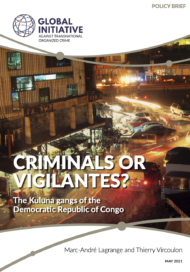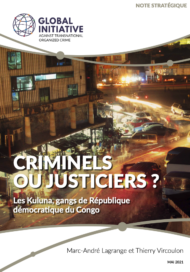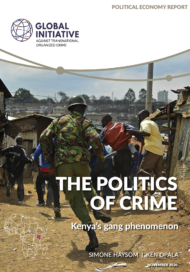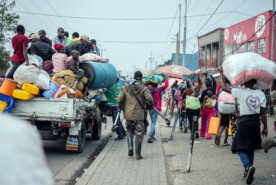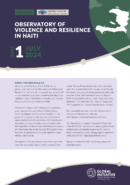The current rise in insecurity in Kinshasa, the capital of the Democratic Republic of Congo (DRC), is often attributed to urban youth gangs – the Kulunas. Embedded in Kinshasa’s neighbourhood life and partnered with local political parties and law enforcement agencies, these gangs threaten urban security in the city.
This paper examines the rise of the Kulunas from a historical and sociological perspective, and analyzes the state’s security responses to address it.
Key points:
- Since the beginning of 2020, there has been a new surge in Kuluna activity in Kinshasa, resulting in a rise in serious crimes, including armed robbery and violent assaults.
- Kuluna gangs are no longer solely a Kinshasa crime phenomenon but the problem has also become widespread in smaller cities.
- Past and current policy approaches focused on violent police repression have failed, creating counterproductive consequences.
- It is now necessary to develop a social approach focused on prevention strategies and a strong judiciary response.
- The gang problem indicates that one of the major challenges in the DRC in the coming years will be urban security governance.
La progression de l’insécurité dans la capitale de la République démocratique du Congo (RDC) est souvent attribuée aux gangs de jeunes urbains, les « Kuluna ». Dans les quartiers de Kinshasa, ils collaborent avec les partis politiques locaux et les forces de l’ordre, compromettant la sécurité de la ville.
Ce document analyse la montée en puissance des Kuluna d’un point de vue historique et sociologique ainsi que les mesures de sécurité mises en place par l’État pour y faire face.
- Depuis début 2020, Kinshasa connaît une recrudescence d’activité du côté des Kuluna, qui se traduit par une augmentation du nombre de crimes graves comme les vols à main armée et les agressions violentes.
- Le phénomène, d’abord cantonné à la capitale, touche maintenant également de plus en plus les petites villes.
- La gestion politique de la situation, caractérisée jusqu’ici par une violente répression policière à l’égard des groupes concernés, s’est soldée par un échec et des conséquences nuisibles.
- Il est désormais nécessaire de développer une approche sociale axée sur des stratégies de prévention et une réponse judiciaire forte.
- Le problème des gangs semble indiquer que
la gouvernance de la sécurité urbaine sera l’un des principaux défis de la RDC dans les années à venir.
